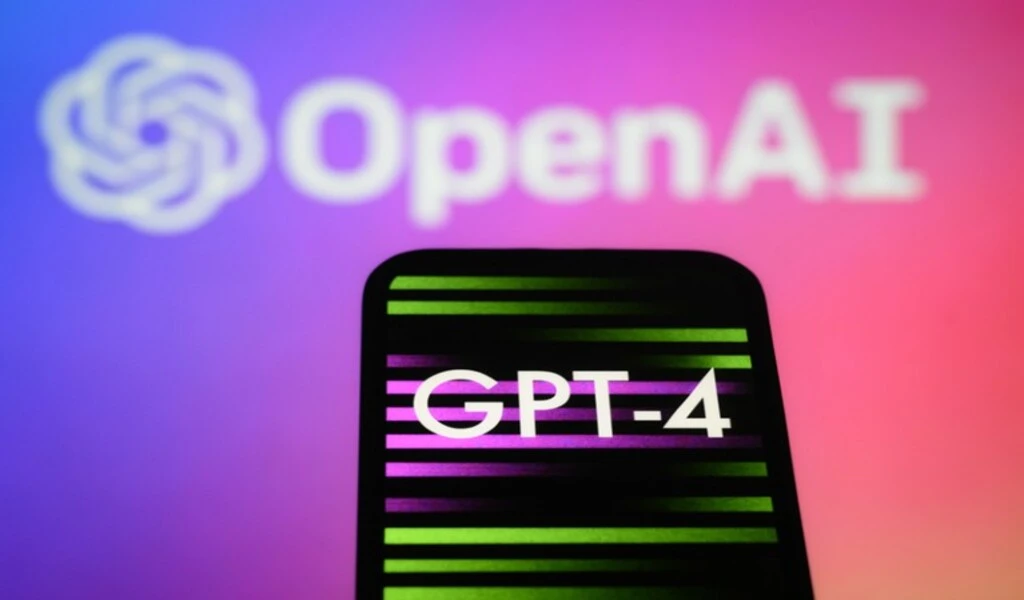(CTN News) – Open-AI has launched GPT-4, and early users claim the AI bot can ‘drug discovery’. Learn more about this new technology, its capabilities, and how it can change the pharmaceutical industry.
Introduction:
Open-AI, a leading artificial intelligence research laboratory, has launched GPT-4, its latest innovation in AI.
The new technology is set to revolutionize the pharmaceutical industry, with early users claiming that the AI bot is capable of ‘drug discovery’.
GPT-4 can help scientists identify new drug candidates and accelerate drug development.
In this article, we’ll explore what GPT-4 is, how it works, and what it means for the future of drug discovery.
We’ll also look at some early results from GPT-4’s testing phase and answer frequently asked questions about this new technology.
What is GPT-4?
GPT-4 is the latest version of the Generative Pre-trained Transformer (GPT) series, a class of AI language models developed by Open-AI.
GPT-4 is the most advanced AI bot to date, capable of generating natural language text indistinguishable from text written by humans.
GPT-4 has been trained on a massive amount of text data, including books, websites, and academic papers, to learn the rules of language and the nuances of meaning.
This allows GPT-4 to understand context, analyze complex information, and generate coherent and relevant responses.
How does GPT-4 work?
GPT-4 uses deep learning algorithms to analyze patterns in language data. The AI bot is trained on a massive corpus of text, which it uses to learn the rules of grammar, syntax, and semantics.
Once trained, GPT-4 can generate natural language text in response to prompts. It can answer questions, summarize text, and even create original content.
In the case of drug discovery, GPT-4 can analyze large datasets of chemical compounds and predict which compounds are most likely to have therapeutic effects.
Early Results from GPT-4 Testing Phase
Early users of GPT-4 have reported promising results in drug discovery. According to a study published in Nature, GPT-4 could predict the activity of 1000 chemical compounds in a biological assay with an accuracy of 94%.
This is a significant improvement over previous AI models, which had an accuracy rate of around 85%.
GPT-4 has also shown promise in identifying new drug candidates. In a recent study published in Science, GPT-4 was used to analyze a database of 250,000 organic compounds and predict which compounds could potentially treat COVID-19.
The AI bot identified several promising candidates, which were tested in the lab and found effective against the virus.
FAQs:
Q: Can GPT-4 replace human scientists in drug discovery?
A: No, GPT-4 cannot replace human scientists. It is a tool that can assist scientists in the drug discovery by analyzing large datasets and predicting which compounds are most likely to have therapeutic effects.
Q: How accurate is GPT-4 in predicting the activity of chemical compounds?
A: Early results suggest that GPT-4 is highly accurate, with an accuracy rate of around 94%.
Q: How long does it take for GPT-4 to analyze a dataset of chemical compounds?
A: The time it takes for GPT-4 to analyze a dataset of chemical compounds depends on the size of the dataset. However, early users have reported that GPT-4 can analyze large datasets much faster than humans, which can save time and resources in the drug discovery process
Q: Can GPT-4 be used in other industries besides pharmaceuticals?
A: Yes, GPT-4 has the potential to be used in a variety of industries, such as finance, marketing, and customer service. It can be used to analyze large amounts of data and generate natural language responses to customer inquiries, among other applications.
Q: What are the ethical concerns around using GPT-4 in drug discovery?
A: There are ethical concerns around using AI in drug discovery, such as the potential for biases in the data or the risk of prioritizing profit over public health. Scientists and policymakers must consider these concerns and develop ethical guidelines for using AI in drug discovery.
Conclusion:
Open-AI’s launch of GPT-4 is a major milestone in AI and drug discovery. The early results from GPT-4’s testing phase are promising, and the AI bot can revolutionize the pharmaceutical industry by accelerating the drug development process and identifying new drug candidates.
However, it is important to remember that GPT-4 is a tool, not a replacement for human scientists. It can assist scientists in their work, but it cannot replace human researchers’ creativity, expertise, and ethical judgment.
As AI advances, scientists and policymakers must consider the ethical implications of using AI in drug discovery and develop guidelines for responsible use. With the right approach, AI has the potential to transform the pharmaceutical industry and improve human health for generations to come.






